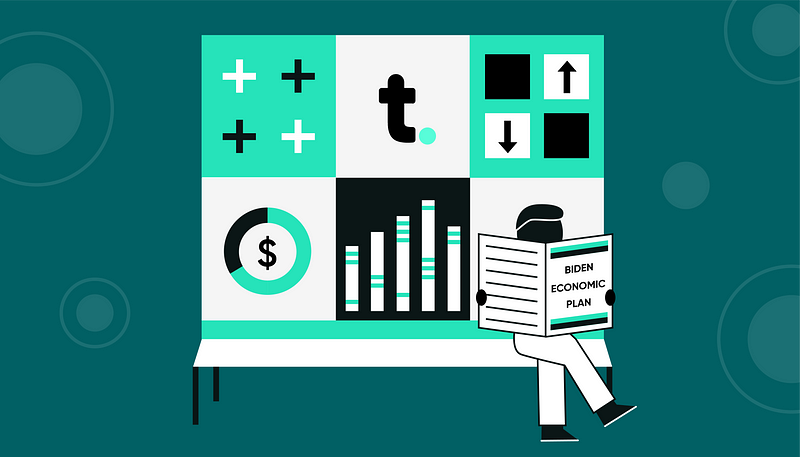
This November was reckoned by a chaotic election season that will lead a very unprecedented year, and presidency, to an end. Days after voting, Americans across the country sat in anticipation of the results of a very close presidential race. The suspense built up to a conclusion that found many people unable to hold in their excitement. The announcement of Joe Biden as the winning presidential candidate on November 7th was met with cheers from many who are hopeful for a new beginning that will amend the disorder of 2020 and prior. Whatever your own political preferences may be, it will always benefit you to stay informed about these issues through credible resources.
With urgent matters on the line such as public health, workers rights, and a COVID-19 stimulus bill, the entire country has its eyes trained on the future POTUS, trusting him to make the right choices. From an individual perspective, money is on all of our minds. The question is, how will our personal finances potentially be affected under a Biden presidency?
The Economy at Large
Upon stepping back into the White House, former Vice President Biden will take on a challenge like no other. It is no secret that the economy is continuing to take huge hits during the pandemic as both businesses and their workers are struggling for air. Consumption behaviors have also changed, and the changes may stay long-term as a response to current conditions. While Biden’s predecessor oversaw a pre-pandemic economy that reached historic economic milestones, the current economy is in equally historically worse shape than it started. For now, what we know of Biden’s strategy to tackle this challenge includes a tax policy that will increase taxes on corporations and high-income individuals and other promises for financial relief with individual plans for businesses, unemployed workers, students, and more who were economically affected by the pandemic.
For a more comprehensive look at Biden’s projected steps to heal the economy, take a look at the Biden-Harris Campaign’s “Emergency Action Plan to Save the Economy.”
COVID-19 Stimulus Bill and Other Relief Programs
The world rides high on a wave of hope as recent news of a successful COVID-19 vaccine surfaced. After many months in the dark, this news provides a glimmer of hope that also brings to mind Biden’s promise to ensure that once a widely-tested, safe and effective vaccine is available, it will be distributed to every American for free. While these are optimistic notions to hold onto, there are still reparations for financial destruction that must be addressed in the present moment. Shockingly high unemployment levels are still rising, causing concern for long term difficulties among unemployed workers. As the pandemic has revealed disturbing wealth inequalities, Biden is adamant in passing another stimulus bill that would provide eligible Americans at least one more relief check through more direct stimulus payments. Biden’s plan also calls for an additional $200 to monthly Social Security recipients. Apart from individual relief, Biden also outlined plans to provide financial help to small businesses and essential workers.
You can read more about Biden and Harris’s expected COVID-19 action plan here.
Student Debt Forgiveness
Another huge talking point throughout Biden’s campaign involves lessening the heavy burden of student loans off the shoulders of college students everywhere. His loan forgiveness plan includes halving payments on undergraduate federal student loans so that individuals are paying 5% of their discretionary income over $25,000 towards their loans. After 20 years, those who have responsibly made payments through this program will be 100% forgiven for the remaining amount. Individuals with new and existing loans will automatically be enrolled in this income-based repayment program, with the ability to opt-out if they wish. Those making less that $25,000 per year will not owe any payments and won’t accrue interest on undergraduate federal student loans. In addition, Biden is planning on implementing a loan forgiveness program that will offer $10,000 of undergraduate student debt relief for every year of national or community service for up to 5 years.
Find more information on “Joe’s Agenda for Students.”